surveillance
Latest

Warrantless searches of Americans’ data spiked 28 percent in 2018
An annual transparency report published by the Office of the Director of National Intelligence shows warrantless searches of Americans' data jumped 28 percent in 2018. According to the report, the National Security Agency (NSA) conducted 9,637 warrantless search queries of Americans' calls, texts, and emails in 2018. That's up from 7,512 searches in 2017, and it's more than double the 4,672 warrantless searches the NSA made in 2015.

Hey Alexa: How can we escape surveillance capitalism?
Where do you go when you want to escape surveillance? When you want to stop feeling like you might be being listened to by microphones, or watched through surveillance cameras, or tracked by invisible tech gremlins burrowed within devices. Certainly nowhere in public. Perhaps it's your car. Maybe it's your home. Or even your bedroom? For some readers, that perimeter of personal freedom likely shrunk in February when news broke that Google "forgot" to tell consumers its Nest Secure came with a built-in microphone.

The NSA says it's time to drop its massive phone-surveillance program
The National Security Agency (NSA) has formally recommended that the White House drop the phone surveillance program that collects information about millions of US phone calls and text messages. The Wall Street Journal reports that people familiar with the matter say the logistical and legal burdens of maintaining the program outweigh any intelligence benefits it brings.

San Francisco could be the first US city to ban facial recognition tech (updated)
The Chinese government has drawn widespread condemnation in recent months over its extensive use of public surveillance and facial recognition technology to monitor the movements of some 12 million Muslim citizens. "It's a 'Muslim tracker' funded by Chinese authorities in the province of Xinjiang to keep track of Uyghur Muslims," Victor Gevers, co-founder of GDI Foundation, a non-profit open-internet advocacy group, wrote on Twitter in February. Facial recognition tracking has received its fair share of criticism here in the US as well -- even as companies like Amazon field test their half-baked AIs with police departments across the country -- and may soon spawn the nation's first outright ban on the technology.

DEA never checked if its bulk surveillance data was legal
If you thought the DEA's mass surveillance was irresponsible, you're not the only one. The Justice Department's Inspector General has released a report showing that the DEA "failed to conduct a comprehensive legal analysis" of three bulk data gathering programs to verify they were above board. On top of this, the policies to govern data use were either vague or non-existent, opening up the potential for abuse.

Dozens of law enforcement agencies are helping ICE track cars
More than 9,200 Immigration and Customs Enforcement employees have access to a license plate database that allows authorities to track the movement of vehicles over time. The American Civil Liberties Union says more than 80 law enforcement agencies across several states are sharing license plate details with ICE, which purportedly doesn't have sufficient safeguards to prevent abuse.

Trump administration may monitor social media to catch disability fraud (updated)
If you're claiming disability benefits, a latergram of you hiking or going out dancing could soon get you in trouble. A proposed Trump administration rule would allow agency officials to snoop on the social media accounts of Social Security disability recipients. The White House is working with the Social Security Administration to propose a new rule that allow for social media monitoring in order to crack down on fraud, reports the New York Times.
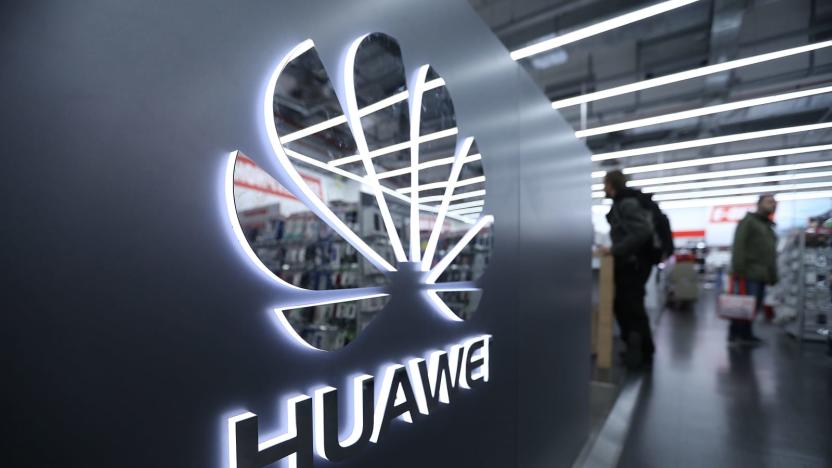
US may punish Germany if it uses Huawei tech
The US hasn't been shy about pressuring its allies to ditch Huawei, but now it's turning to threats of serious consequences. The Wall Street Journal has learned that the US' Ambassador to Germany, Richard Grenell, wrote a letter to Germany's economy minister warning that the US would limit its intelligence sharing with the country if it lets Chinese vendors like Huawei participate in building its 5G networks. Secure communications are vital for defense, Grenell argued, and companies like Huawei could undermine that security.

'Every Thing Every Time' builds poetry from the smart city
Just opposite the Austin Convention Center there's a mechanical split-flap display -- the kind you might see in a 20th century train station -- propped on a slim strip of grass, fluttering off terse verses like this one from 11:26 AM on Friday: SOMEONE BUYS A TICKET, THE JURY HAS MADE A DECISION, THE ARTIST PREPARES AND THE PRICE OF COTTON RISES.

US could soon end mass phone surveillance program exposed by Snowden
The US government might put an end to the controversial NSA phone surveillance program Edward Snowden exposed by the end of 2019. Republican congressional national security adviser Luke Murry revealed during a Lawfare podcast that Congress might not renew the USA Freedom Act, which authorizes the agency's call data bulk collection, when it expires later this year. He also said that the NSA hasn't even been using the system for the past six months, putting into question the agency's previous claim that data collection is vital to national security.
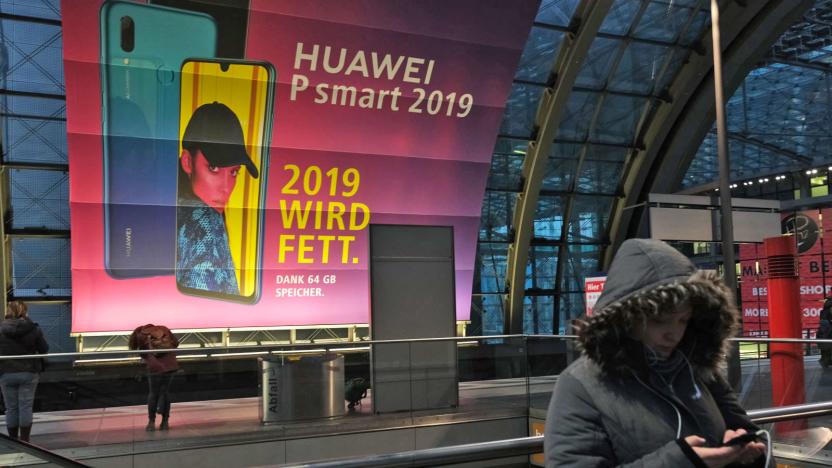
Germany may use Huawei hardware for its 5G networks
The UK isn't the only country skeptical of American hostility toward Huawei over spying fears. German officials talking to the Wall Street Journal say the country has made a "preliminary decision" to let Huawei bid on contracts for 5G networking despite US pressure to ban the Chinese company. A cybersecurity agency investigation didn't show evidence that Huawei could steal data through its wireless equipment, the officials said, even though the country had US help. It also couldn't find proof that Huawei had done anything wrong, and conversations with the US and UK over potential security holes were ultimately "inconclusive."
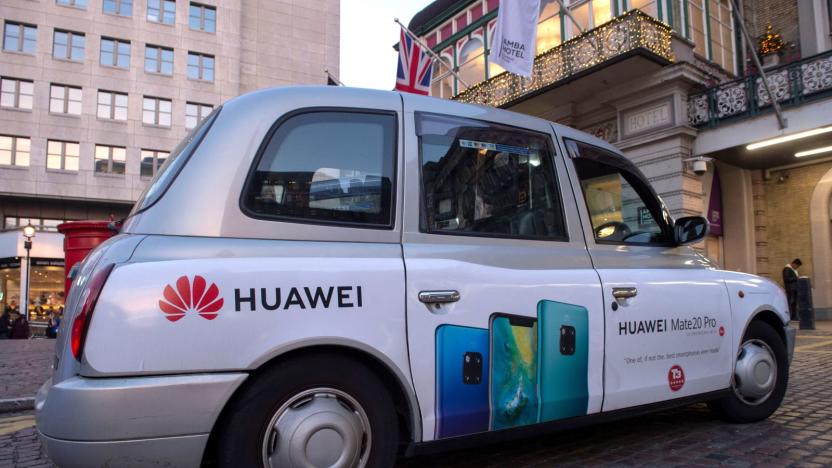
UK believes it doesn't need to ban Huawei from 5G networks
The US may have had some success in persuading allies to ban Huawei equipment from their 5G networks, but not everyone is convinced there's an existential threat. Financial Times sources claim the UK's National Cyber Security Centre has found that it can limit the risks of using Huawei gear in 5G deployments without banning it entirely. This could include using a variety of suppliers and restricting some parts of 5G networks.

Chinese surveillance company found tracking 2.5 million people
Security vulnerabilities are horrible, but one of them is shedding light on the reach of the Chinese surveillance state. Security researcher Victor Gevers discovered that facial recognition firm SenseNets left a surveillance database completely exposed, revealing that it has been tracking over 2.5 million people in the western province of Xinjiang, where China has targeted Uighur Muslims. The company has been holding on to personally identifying info (such as names and ID card numbers) as well as an extensive amount of location info, including 6.7 million data points tagged with names (such as "mosque" and "hotel") gathered inside of 24 hours.

Hong Kong is testing high-tech monitoring systems for 'smart' prisons
Prisons in Hong Kong are testing a variety of high-tech services that will allow correctional facilities to better track inmates, according to the South China Morning Post. The city's Commissioner of Correctional Services, Danny Woo Ying-min, claimed the new services will be used to monitor for abnormal behavior among the incarcerated, prevent self-harm, and operate the prisons more efficiently.

Russia says Facebook and Twitter are violating data laws
Russia has long wanted heavyweight social networks to store data inside the country, but now that's becoming more than a vague threat. Communications overseer Roskomnadzor has started "administrative proceedings" against Facebook and Twitter after they allegedly failed to submit specific plans for storing Russian users' data within the country's borders. It claimed to have sent both companies letters on December 17th telling them they had 30 days to provide a "legally valid" answer, but didn't get a useful response back.
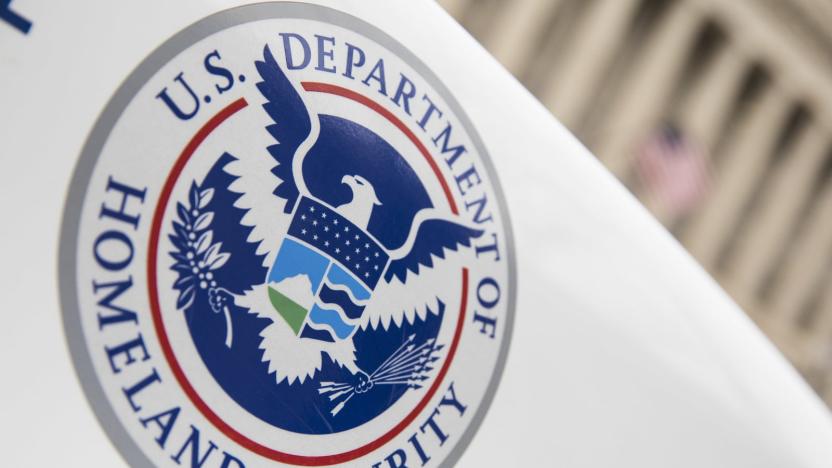
ACLU sues US government over social media surveillance of immigrants
The ACLU has sued the federal government, naming the Department of Justice, the FBI, the Department of Homeland Security, ICE, US Customs and Border Protection, US Citizenship and Immigration Services and the State Department as defendants. The civil rights organization is seeking information regarding the government's practice of monitoring immigrants' and visa applicants' social media accounts, information that it says these agencies have been withholding.
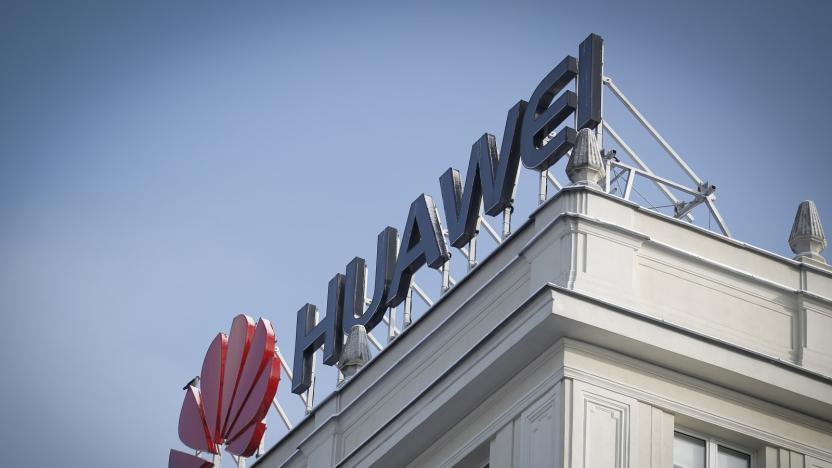
Huawei fires employee arrested in Poland over alleged spying
Huawei doesn't want further whiffs of suspicion around its motivations, even in cases where it's not directly implicated. The Chinese tech giant has fired Weijing Wang, an employee arrested in Poland over spying allegations despite security officials saying the espionage wasn't directly tied to Huawei. The staffer brought the company into "disrepute," according to a statement. Police also arrested a Polish citizen in connection to the case.

Beijing uses face-detecting smart locks to curb public housing abuses
China's ever-growing reliance on facial recognition is spreading to public housing. Beijing is ramping up the use of face-detecting smart locks in public housing projects to bolster security for tenants (such as denying access to strangers) and crack down on abuses like illegal sublets. It even asks management to check on senior residents if they haven't entered or left their homes after a certain period of time.

NYPD will deploy a drone at Times Square on New Year's Eve
Security at Times Square tends to be extra-tight on New Year's Eve, but it's now poised to have some robotic support. The NYPD is deploying one of its new camera-toting drones at the event for the first time, giving it an aerial surveillance tool that's decidedly closer to the action than a conventional aircraft or helicopter. The machine will not only watch for trouble in the crowd, but wield "counter-drone technology" to keep potentially hostile vehicles at bay.

Chinese schools keep tabs on kids with 'intelligent uniforms'
Even schoolkids can't escape China's increasing obsession with surveillance. Over 10 schools in the country's southwestern Guizhou province and Guangxi Zhuang Autonomous Region have made students wear "intelligent uniforms" from Guanyu Technology in the name of improving attendance and safety. Each uniform has two chips that indicate when a student is entering or exiting school grounds, and automatically sends that data to both parents and teachers. Leave without permission and an automatic voice alarm will make it patently clear you're a truant.










